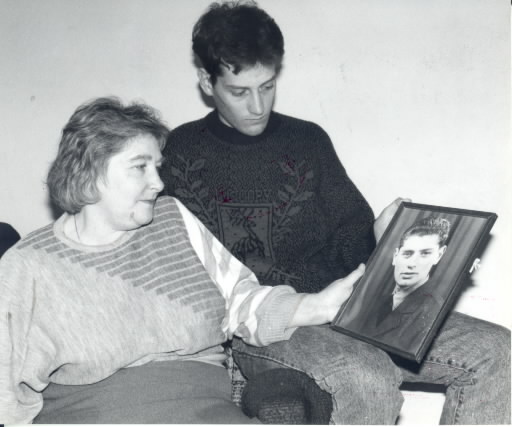3. Fighting for Recognition
Feb. 15, 2013
Chapter 3: The Central, South Pacific and Australia
Part 5: Victims of Christmas Island
Part 5: Victims of Christmas Island
A television documentary featuring McGinley drew a widespread response from viewers all over Britain. Letters and phone calls poured in from former soldiers in the same position, and from widows who had lost their husbands to cancer. McGinley had had no idea there were so many men suffering from radiation-linked diseases. He contacted as many of the ex-servicemen as he could, and together they formed the British Nuclear Test Veterans Association (BNTVA) in May 1983.
The BNTVA, which now has sixteen branches all over the United Kingdom and a total of two thousand members, including two hundred widows, has enlisted the help of lawyers and specialists in radiation medicine. According to McGinley, the fight to obtain recognition and compensation is really only just beginning.
In London we met one of the association's members, Rosalyn Levene, who was widowed sixteen years previously when her husband, Leon, died of leukemia.
"In 1988 the Department of Health and Social Security (DHSS) finally admitted my husband's death was directly related to his experiences on Christmas Island. I was thrown out of court six years ago for trying to prove the same thing. At least this means I can finally get the war widow's pension."
She spoke about her husband with difficulty, and it was obvious that the memory of his untimely death at the age of thirty-six was still a painful one. Prompted by the association's claims, the National Radiological Protection Board (NRPB) investigated the causes of death of servicemen who had taken part in nuclear tests. In January 1988 the NRPB came to the conclusion that there was an undeniable link between exposure to radiation from nuclear testing and the incidence of leukemia and bone marrow tumors among returned servicemen.
This judgment prompted the DHSS to provide an allowance for those affected. Mrs. Levene is one of only two women who have managed to obtain an allowance of £56 a week, which falls far short of her needs. It is her belief that, while it is only a small victory for the BNTVA, the way has been laid open for fixture claims.
Despite this victory, the BNTVA does not place a great deal of faith in the results of the board's investigation, which it considers to have been carried out in a slipshod manner. The board estimates that 22,347 people received doses of radiation, but of these, as many as 5,000 have never witnessed a test or taken part in decontamination work on any of the sites. In addition to these inconsistencies, there are no records available for any of the servicemen who died of cancer before 1971.
Following its success in obtaining war widow's pensions for Mrs. Levene and one other widow, the BNTVA has swung into action on the issue of government recognition of radiation-linked cancer among servicemen. Across the Atlantic, the United States government has already recognized thirteen types of cancer as being caused by exposure to large doses of radiation during nuclear testing.








